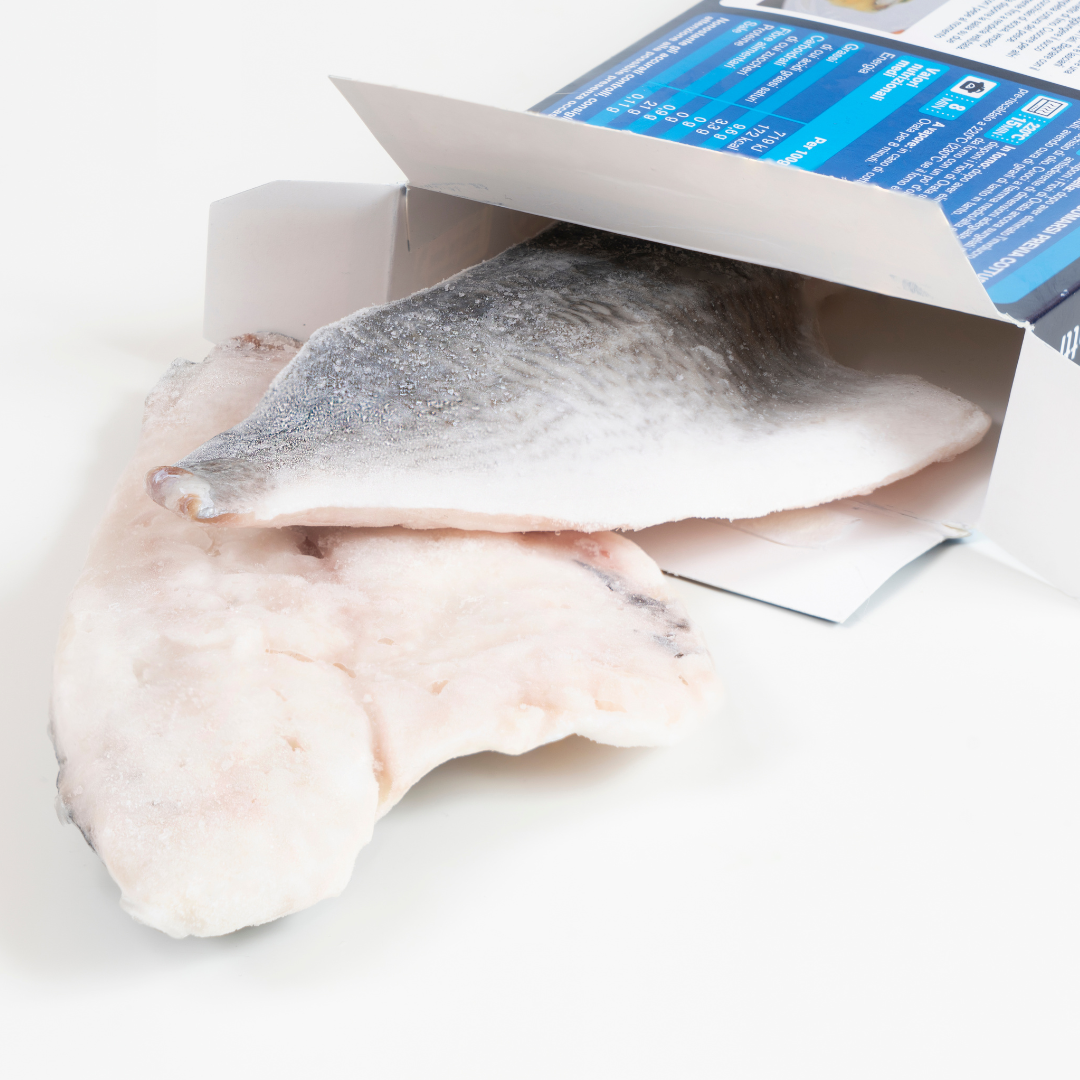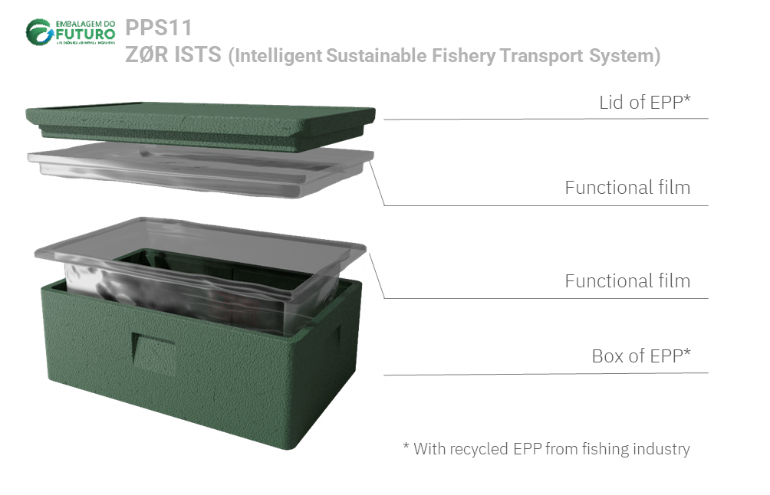


The PPS 11 ZØR – ISTS of the Green Agenda for Business Innovation | Packaging of the Future | + Ecological + Digital + Inclusive, aims to develop an innovative solution for the transport of thermosensitive products for the food sector: fresh fish and deep-frozen fish, with passive cooling.
Passive cold solutions make it possible for thermosensitive products to be transported in vehicles without active refrigeration systems, which facilitates the conversion of the fleet into electric vehicles, thus achieving the Net-Zero objective.
The packaging will be produced from recycled materials from fishing nets, with a polymeric film (food safe) and integrated sensors inside. The incorporation of waste from the fishing industry will reduce the environmental impact. The polymeric film will prevent the impregnation of particles and microorganisms in the isothermal packaging material (EPP foam), facilitating its cleaning. With the improvement of hygienic conditions, it will be possible to reuse the transport solution promoting the circular economy and the reduction of CO2 emissions. The sensors will monitor the temperature throughout transport and detect the deterioration of fresh fish, contributing to increased food safety, improved logistics efficiency, and reduced food waste.
In this project, PIEP’s contribution will focus mainly on defining the requirements of the production process and production tools, taking into account the film and box design for transporting thermosensitive products.
In addition, the research and development of production processes for packaging for transport at controlled temperatures is contemplated. Here, in the first phase, new forms and methodologies will be identified for combining the production of EPP with polymeric film. In a second phase, the work will focus on framing the new foam formation methodology with the incorporation of film to test the adhesion levels between the EPP and the film, and the functionality of the sensors, among others. After determining the most appropriate technological solution for the product under development, process integration and hybridization will proceed, thus validating the developed product. Here, it should be noted that from the identification of potential problems it will be possible to carry out the development in an iterative way, implementing improvements between each iteration.
Finally, it is worth noting the carrying out of a comparative environmental and economic study between the new reusable product and the baseline product of mostly single use.


Download project sheet.

